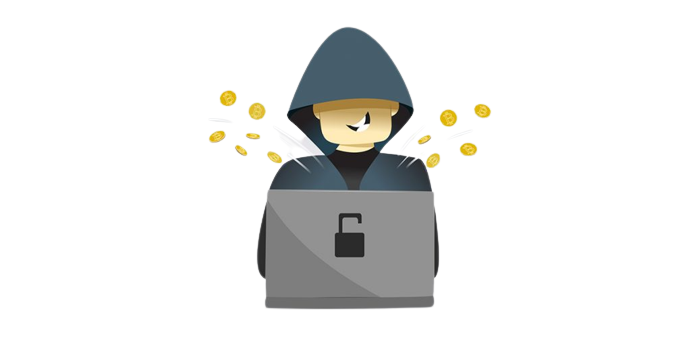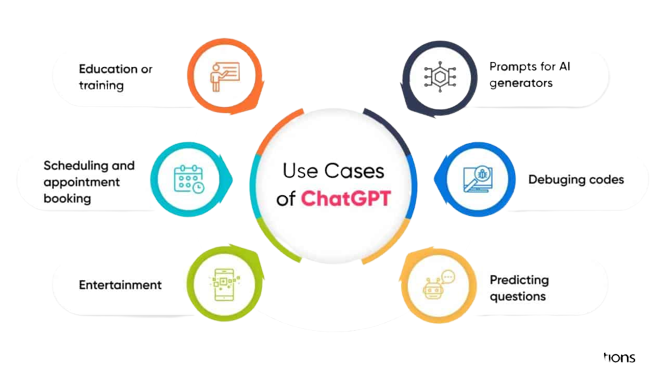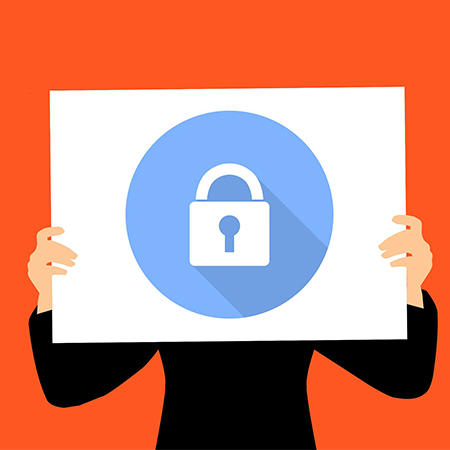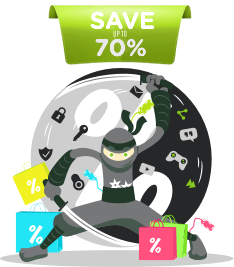 Imagine having a virtual assistant at your fingertips, ready to chat and help you with any question or task you have. Well, that’s exactly what chat gpt brings to the table in 2023!
Imagine having a virtual assistant at your fingertips, ready to chat and help you with any question or task you have. Well, that’s exactly what chat gpt brings to the table in 2023!
This cutting-edge technology combines the power of artificial intelligence with natural language processing to create an interactive and conversational experience like never before. But as we dive into this exciting world of chat GPT, it’s important to address one crucial aspect: privacy.
In today’s blog post, we’ll explore how privacy is protected in chat GPT interactions and share some tips on safeguarding your online privacy in general.
So grab a cup of coffee and let’s delve into the fascinating realm of chat GPT while keeping our privacy intact!
What is chat GPT?
Chat GPT, or Chat Generative Pre-trained Transformer, is an advanced language model developed by OpenAI. It builds upon the success of its predecessor, GPT-3, but with a specific focus on conversational interactions. This cutting-edge technology enables users to engage in natural and dynamic conversations with AI-powered bots.
With chat GPT, you can communicate with the system as if you were chatting with another person. The model excels at understanding context and providing relevant responses based on the input it receives. Whether you need assistance with a task, want to brainstorm ideas, or simply have a casual conversation, chat GPT is designed to deliver engaging and informative interactions.
This powerful tool has been trained on vast amounts of data from the internet to enhance its ability to generate coherent and contextually appropriate responses. By leveraging deep learning techniques, chat GPT can understand nuances in language and adapt its answers accordingly.
As an AI-driven conversational agent, chat GPT aims to provide human-like interactions while generating helpful and accurate responses. With continuous advancements in natural language processing technology like chat GPT, we are entering an era where seamless human-AI communication becomes increasingly accessible and valuable for various applications across industries.
How is privacy protected in chat GPT?

Privacy protection is a key concern when it comes to using chat GPT. OpenAI, the organization behind GPT, takes privacy seriously and has implemented measures to protect user data. One of the ways this is achieved is by anonymizing and aggregating data during training. This means that any personal information shared with chat GPT cannot be traced back to an individual.
In addition to this, OpenAI has also introduced a moderation system in order to prevent inappropriate or harmful content from being generated by chat GPT. The system uses a combination of human reviewers and automated filters to ensure that conversations adhere to community guidelines.
OpenAI also gives users control over their interactions with chat GPT through a feature called “system level” instructions. These instructions allow users to set boundaries for the AI’s behavior, ensuring that it respects their privacy preferences.
By implementing these measures, OpenAI aims to strike a balance between providing useful conversational AI capabilities while prioritizing user privacy and safety. It’s important for individuals using chat GPT to be aware of these privacy protections and use them responsibly in order to have a secure online experience.
Case study: Joe’s experience with chat GPT

Who is Joe
Joe, a freelance writer, was intrigued by the buzz surrounding chat GPT and decided to give it a try. He had heard about its advanced capabilities in generating human-like responses in real-time conversations. Eager to explore its potential for his writing projects, Joe dove into the world of chat GPT.
At first, Joe found himself amazed by how seamlessly he could interact with the AI-powered chatbot. The system seemed to understand his queries and responded with impressive coherence and context. It almost felt like chatting with a real person!
What are his concerns?
However, as Joe continued using chat GPT, he became increasingly concerned about privacy issues. He wondered if his personal information or conversation details were being stored or monitored without his knowledge.
To alleviate these concerns, Joe did some research on how privacy is protected in chat GPT systems. He discovered that OpenAI takes user privacy seriously and has implemented measures to safeguard sensitive data. Conversations are anonymized and stored securely while removing any personally identifiable information.
Despite this assurance, Joe still wanted to take extra precautions to protect his online privacy when using chat GPT. He followed best practices such as using strong passwords for all accounts, enabling two-factor authentication whenever possible, and being mindful of sharing sensitive information during conversations.
Additionally, knowing that even reputable companies can fall victim to data breaches or hacking attempts, Joe decided to enhance his online security further by utilizing a Virtual Private Network (VPN) while interacting with chat GPT.
How does Joe protect himself online?
By connecting through a VPN server located in another country, Joe ensured that his internet traffic was encrypted and routed through secure channels. This added layer of protection helped prevent unauthorized access or tracking of his online activities by third parties.
In conclusion,
Joe’s experience with chat GPT was both fascinating and thought-provoking. While he marveled at the AI’s conversational abilities, he also recognized the importance of maintaining online privacy when using such technologies.
How to use chat GPT
 Using chat GPT is incredibly easy and straightforward. All you need is an internet connection and a device such as a smartphone or computer. Simply access the platform where chat GPT is available, whether it’s a website or an app.
Using chat GPT is incredibly easy and straightforward. All you need is an internet connection and a device such as a smartphone or computer. Simply access the platform where chat GPT is available, whether it’s a website or an app.
Once you’re on the platform, you’ll be greeted with a user-friendly interface that allows you to input your queries or messages. You can start by typing in your message just like you would when chatting with someone online.
The AI-powered chatbot will then process your message and generate a response based on its vast knowledge base. It’s important to note that while chat GPT can provide helpful information, it should not be treated as infallible. It’s always wise to fact-check any information provided by the AI.
You can continue the conversation by asking follow-up questions or providing additional context if needed. The more specific and detailed your queries are, the better chance of receiving accurate and relevant responses from the chatbot.
Remember to keep in mind that although chat GPT is designed to mimic human-like interactions, it does have limitations. It may struggle with understanding complex commands or nuanced language nuances at times.
Using chat GPT opens up new possibilities for accessing information quickly and conveniently. Whether you’re seeking answers to specific questions or engaging in casual conversations, this technology has made communication with AI more accessible than ever before!
Pros and cons of chat GPT
Pros
1. Chat GPT, like any other technology, comes with its own set of pros and cons. Let’s explore some of the advantages and disadvantages of using this innovative tool.
2. One significant advantage of chat GPT is its ability to generate human-like responses. It can carry on conversations that are coherent and contextually relevant. This makes it useful for a wide range of applications such as customer support, virtual assistants, or even just engaging in casual conversations.
3. Another benefit is the convenience and accessibility it offers. Chat GPT can be accessed through various platforms like websites or messaging apps, allowing users to interact with it seamlessly from anywhere they have an internet connection.
Cons
1. However, there are also some limitations to consider. One major drawback is that chat GPT may sometimes produce incorrect or nonsensical answers. While efforts have been made to improve accuracy, it’s important to remain cautious when relying solely on its responses.
2. Additionally, privacy concerns arise when using chat GPTs. As these models require data input from users during training, there might be potential risks associated with sharing personal information or sensitive data in a conversation with a chatbot.
Despite these drawbacks, the advancements in chat GPT technology offer exciting possibilities for enhancing user experiences across various industries. By understanding both the benefits and limitations inherent in this tool, we can leverage its strengths while mitigating potential risks.
How to protect online privacy?

In today’s digital age, protecting your online privacy has become increasingly important. With the constant threat of cyber attacks and data breaches, it is crucial to take proactive measures to safeguard your personal information. Here are some practical tips on how to protect your online privacy:
1. Make sure to use strong and unique passwords for all your online accounts. Avoid using predictable combinations such as birthdays or names. Instead, opt for a mix of uppercase and lowercase letters, numbers, and special characters.
2. Another effective way to protect your online privacy is by enabling two-factor authentication (2FA) whenever possible. This adds an extra layer of security by requiring you to provide a second form of verification, such as a fingerprint scan or a code sent to your mobile device.
3. Additionally, be cautious about the information you share on social media platforms. Limit the amount of personal details you disclose publicly and regularly review your privacy settings.
4. Furthermore, consider using a Virtual Private Network (VPN) when browsing the internet. A VPN encrypts your internet connection and masks your IP address, making it difficult for hackers or trackers to trace your online activities.
5. Keep all software up-to-date with the latest security patches and updates. This includes not only operating systems but also web browsers and applications you frequently use.
By implementing these practices into your daily routine, you can significantly enhance the protection of your online privacy. Stay vigilant in this ever-evolving digital landscape!
How VPN protects privacy online?
In today’s digital age, protecting our online privacy has become more crucial than ever. With the growing number of cyber threats and data breaches, it is important to take proactive measures to safeguard our personal information. One such measure is using a Virtual Private Network (VPN).
A VPN creates a secure encrypted connection between your device and the internet by routing your internet traffic through an encrypted tunnel. This effectively hides your IP address and encrypts all data transmitted, making it nearly impossible for anyone to intercept or decipher.
By using a VPN, you can browse the internet anonymously and securely. It masks your true location, allowing you to access geo-restricted content without being tracked. Whether you’re accessing public Wi-Fi networks or conducting sensitive transactions online, a VPN adds an extra layer of protection by ensuring that no one can eavesdrop on your activities.
Moreover, reputable VPN providers have strict no-logs policies in place. This means they do not collect or store any personally identifiable information about their users’ browsing habits or online activities.
With the rapid advancements in technology and increasing concerns over privacy invasion, investing in a reliable VPN service is wise. It has become essential for individuals who value their online security and want complete control over their personal information.
So next time you connect to the internet – whether at home or on-the-go – consider utilizing a trusted VPN service. This will ensure your privacy remains intact while enjoying all that the digital world has to offer!
Best VPN for Ghat GPT
HideIPVPN offers a VPN service with military-grade encryption, and high-speed servers with unlimited bandwidth.
Our service comes with shared IP addresses so that your activity can never be tied to one particular user, further protecting your privacy.

We also offer DNS leak protection, a Kill Switch, the latest VPN protocols, and a guaranteed no-log policy.
Best VPN Deal! Get HideIPVPN for $2.7/mo!
Every purchase you make comes with a 30-day money-back guarantee.
Conclusion
In today’s digital age, where privacy concerns are at an all-time high, it is important to have tools and technologies that prioritize the protection of our personal information. Chat GPT brings a new level of convenience and interaction to online conversations but raises questions about privacy.
With advancements in technology, OpenAI has taken steps to address these concerns by implementing measures to safeguard user data. Through the use of differential privacy techniques, they ensure that individual interactions cannot be traced back to specific users. This helps maintain anonymity and protects sensitive information from falling into the wrong hands.
However, while efforts are made to protect user privacy within the chat GPT system itself, it is essential for individuals to take additional steps in safeguarding their online privacy. This includes being mindful of what personal information is shared during conversations and understanding how it may be used by third parties.
How to stay protected?
One effective way to enhance online privacy is through the use of a Virtual Private Network (VPN). A VPN encrypts internet traffic and masks your IP address, making it difficult for anyone monitoring your activities to track or identify you. By using a reputable VPN service provider, you can add an extra layer of security when using chat GPT or any other online platform.
Chat GPT opens up exciting possibilities for more natural and engaging conversations with AI-powered systems. While there are concerns about privacy in this evolving landscape, OpenAI has implemented measures like differential privacy techniques as part of their commitment towards protecting user data.
Additionally, individuals can further enhance their own online privacy by practicing caution when sharing personal information during conversations and utilizing tools like VPNs for added protection.
As we move forward into 2023 and beyond, maintaining a balance between technological advancements and preserving our right to privacy will continue shaping the future landscape of AI-driven communication platforms like chat GPT



